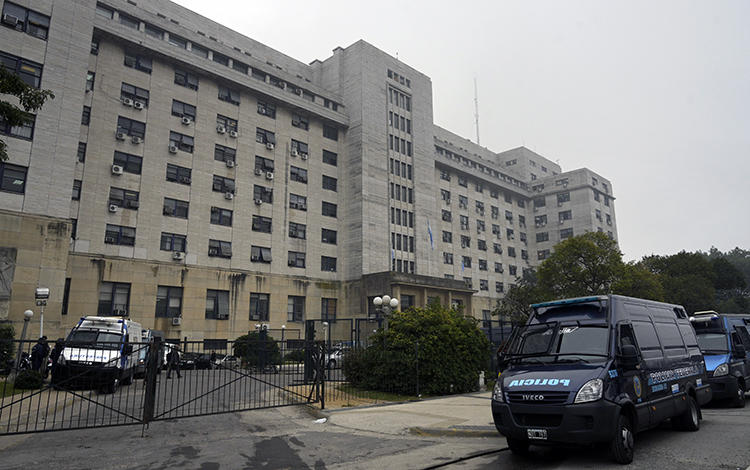Miami, July 16, 2019 — The Committee to Protect Journalists today expressed concern over an Argentine court’s summons of journalist Daniel Santoro and urged authorities to respect the confidentiality of journalistic sources.
On June 10, the Federal Court of First Instance of Dolores, in Buenos Aires province, summoned Santoro, an investigative journalist at national daily Clarín, to appear on July 17 in relation to his alleged involvement in an extortion scheme, according to Santoro, who spoke with CPJ on the phone, and a copy of the subpoena, which CPJ reviewed.
The summons followed the court’s receipt of “details of all calls received or made” on Santoro’s phone from January 2016 to April 2019, which the court received on May 9 after subpoenaing local telecom company Telefónica Móviles Argentina, SA (Movistar), according to a letter addressed to the court signed by a Movistar representative and reviewed by CPJ.
“By summoning Daniel Santoro to court and obtaining his phone records, Argentine authorities are sending an alarming message to the country’s journalism community,” said CPJ Central and South America Program Coordinator Natalie Southwick in New York. “These actions endanger the principle of the confidentiality of journalistic sources, one of the cornerstones of press freedom.”
The subpoena alleges that Santoro participated in a scheme that sought to extort businesspeople by threatening negative news coverage. It specifically mentions an interview with Gonzalo Brusa Dovat, a former manager of an Argentine subsidiary of Venezuela’s state-owned oil company, PDVSA, which was published in Clarín on February 2, 2019, and which the subpoena alleges was part of the scheme.
The allegations stem from Santoro’s connections with Marcelo D’Alessio, an Argentine national who arranged the interview and who has been charged with extorting Brusa, according to the subpoena.
Santoro denied any criminal misconduct in a phone call with CPJ and said that D’Alessio was a journalistic source. “D’Alessio would provide me with information, I would review it and sometimes publish it, and sometimes I discarded it,” he said. “Ours was a journalistic relationship, as he had with other journalists.”
CPJ’s calls to the Federal Court of First Instance of Dolores went unanswered, and CPJ’s email to the Argentine Judiciary Power, the country’s judicial branch, which includes both the courts and the public prosecutors, did not receive a response. CPJ was unable to contact D’Alessio, who is in police custody, according to local media.
Argentine press freedom organization Foro de Periodismo Argentino condemned Santoro’s summons in a statement, calling it the “criminalization of journalistic work.”
